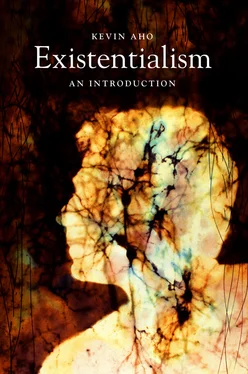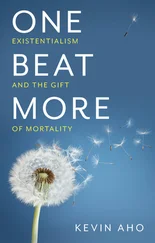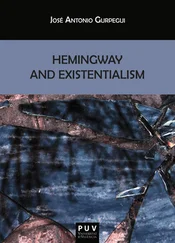The danger, for Heidegger, is that our boredom has become so ubiquitous and all-encompassing that it is now hidden, and this is why he is so concerned. The fact that we are bored with our existence but are unaware of our own boredom is what he calls “the greatest distress” (1999b, 87). But this brings us back to the enduring relevance of existentialism. By bringing us face-to-face with the ultimate questions ‘ Who am I ?’ and ‘ How should I live ?’ existentialism has the power to pull us out of our busy, listless drift, forcing us to confront the choices and actions that make us who we are. It reminds us that regardless of how distracted and consumed we may become in our day-to-day lives, we cannot escape the anguish at the heart of the human situation, and that only by facing this anguish can we identify what is truly at stake for us. To this end, existentialism always creates the possibility for a confrontation that allows me, in Kierkegaard's words, to find a truth ‘ for which I can live and die .’
Suggested reading
Gordon, L. (1997). Existential dynamics of theorizing black invisibility. In L. Gordon (ed.), Existence in black: An anthology of black existential philosophy (pp. 69–80). New York: Routledge.
Kruks, S. (2012). Simone de Beauvoir and the politics of ambiguity . Oxford: Oxford University Press.
Loy, D. (1996). Lack and transcendence: The problem of death and life in psychotherapy, existentialism, and Buddhism . New York: Prometheus.
Thomson, I. (2004). Ontology and ethics at the intersection of phenomenology and environmental philosophy. Inquiry 47 (4): 380–412.
Abbey, R. (2000). Nietzsche's middle period . New York: Oxford University Press.
Ackerman, R. J. (1990). Nietzsche: A frenzied look . Amherst: University of Massachusetts Press.
Ahern, D. R. (1995). Nietzsche as a cultural physician . University Park: Pennsylvania State University Press.
Aho, J., and K. Aho (2008). Body matters: A phenomenology of sickness, illness, and disease . Lanham, MD: Lexington Books.
Aho, K. (2008). Medicalizing mental health: A phenomenological alternative. Journal of medical humanities 29 (4): 243–259.
Aho, K. (2009). Heidegger's neglect of the body . Albany: State University of New York Press.
Aho, K. (2013). Depression and embodiment: Phenomenological reflections on motility, affectivity, and transcendence. Medicine, health care, and philosophy. DOI 10-1007/s11019-013-9470-8.
Alderman, H. (1977). Nietzsche's gift . Athens: Ohio University Press.
Allison, D. B. (ed.) (1994). The new Nietzsche: Contemporary styles of interpretation . Cambridge, MA: MIT Press.
Allison, D. B. (2001). Reading the new Nietzsche: The birth of tragedy, The gay science, Thus spoke Zarathustra, and On the genealogy of morals . Lanham, MD: Rowman and Littlefield.
Anderson, T. C. (1979). The foundation and structure of Sartrean ethics . Lawrence, KS: Regents Press.
Anderson, T. C. (1993). Sartre's two ethics: From authenticity to integral humanity . Chicago: Open Court.
Ansell-Pearson, K. (1994). An introduction to Nietzsche as a political thinker: The perfect nihilist . Cambridge: Cambridge University Press.
Ansell-Pearson, K., and H. Caygill (eds.) (1993). The fate of the new Nietzsche . Aldershot: Avebury.
Arp, K. (2001). The bonds of freedom: Simone de Beauvoir's existentialist ethics . Chicago: Open Court.
Askey, R. (2001). Heidegger's philosophy and its implications for psychology, Freud, and existential psychoanalysis. In M. Heidegger's Zollikon seminars (pp. 301–316). Evanston, IL: Northwestern University Press.
Babich, B. E. (1994). Nietzsche's philosophy of science: Reflecting on the ground of art and life . Albany: State University of New York Press.
Barker, S. (1992). Autoaesthetics: Strategies of the self after Nietzsche . Atlantic Highlands, NJ: Humanities Press.
Barnes, H. E. (1967). An existentialist ethics . Chicago: University of Chicago Press.
Barnes, H. E. (1973). Sartre . Philadelphia, PA: J. B. Lippincott.
Barnes, M., and J. Berke (1971). Mary Barnes: Two accounts of a journey through madness . New York: Ballantine Books.
Barrett, W. (1958). Irrational man: A study in existential philosophy . Garden City, NY: Doubleday.
Bartlett, E. A. (2004). Rebellious feminism: Camus's ethic of rebellion and feminist thought . Basingstoke: Palgrave Macmillan.
Bataille, G. (1992). On Nietzsche . (B. Boone, trans.) New York: Paragon House.
Batchelor, S. (1997). Buddhism without beliefs: A contemporary guide to awakening . New York: Riverhead Books.
Baudrillard, J. (2001). Impossible exchange . (C. Turner, trans.) London: Verso Books.
Bauer, N. (2001). Simone de Beauvoir, philosophy and feminism . New York: Columbia University Press.
Baynes, K. (2010). Self, narrative and self-constitution: Revisiting Taylor's ‘self-interpreting animals.’ Philosophical forum 41 (4): 441–457.
Beard, G. M. (1881). American nervousness, its causes and consequences: A supplement to nervous exhaustion (neurasthenia) . New York: G. P. Putnam's Sons.
Beauvoir, S. (1948). The ethics of ambiguity . (B. Frechtman, trans.) New York: Philosophical Library.
Beauvoir, S. (1952). The second sex . (H. M. Parshley, trans.) New York: Knopf.
Beauvoir, S. (1954). She came to stay . (Y. Moyse and R. Senhouser, trans.) Cleveland: World Publishing.
Beauvoir, S. (1956). The mandarins . (L. Friedman, trans.) Cleveland: World Publishing.
Beauvoir, S. (1959). Memoirs of a dutiful daughter . (J. Kirkup, trans.) Cleveland: World Publishing.
Beauvoir, S. (1965). Force of circumstance . (R. Howard, trans.) New York: Putnam.
Beauvoir, S. (1966). A very easy death . (P. O'Brian, trans.) New York: Putnam.
Beauvoir, S. (1969). The woman destroyed . (P. O'Brian, trans.) New York: Putnam.
Beauvoir, S. (1972). The coming of age . (P. O'Brian, trans.) New York: Putnam.
Beauvoir, S. (1983). Who shall die? (C. Francis and F. Gontier, trans.) Florissant, MO: River Press.
Beauvoir, S. (1992). Letters to Sartre . (Q. Hoare, trans.) New York: Arcade Publishing.
Beauvoir, S. (1999). America day by day . (C. Cosman, trans.) Berkeley: University of California Press.
Beauvoir, S. (2004). Moral idealism and political realism. In M. A. Simons (ed.), Simone de Beauvoir: Philosophical writings (pp. 175–193). Urbana-Champaign: University of Illinois Press.
Beistegui, M. de (2005). The new Heidegger . London: Continuum.
Bell, L. A. (1989). Sartre's ethics of authenticity . Tuscaloosa: University of Alabama Press.
Bergmann, F. (1983). The experience of values. In S. Hauerwas and A. MacIntyre (eds.), Revisions: Changing perspectives in moral philosophy (pp. 127–159). Notre Dame, IN: University of Notre Dame Press.
Bergoffen, D. (1997). The philosophy of Simone de Beauvoir: Gendered phenomenologies, erotic generosities . Albany: State University of New York Press.
Bernasconi, R. (2007). How to read Sartre . New York: W. W. Norton.
Binswanger, L. (1956). Existential analysis and psychotherapy. In F. Fromm-Reichmann, and J. L. Moreno (eds.), Progress in psychotherapy (pp. 144–168). New York: Grune and Stratton.
Birt, R. (1997). Existence, identity, and liberation. In L. Gordon (ed.), Existence in black (pp. 205–213). New York: Routledge.
Читать дальше












